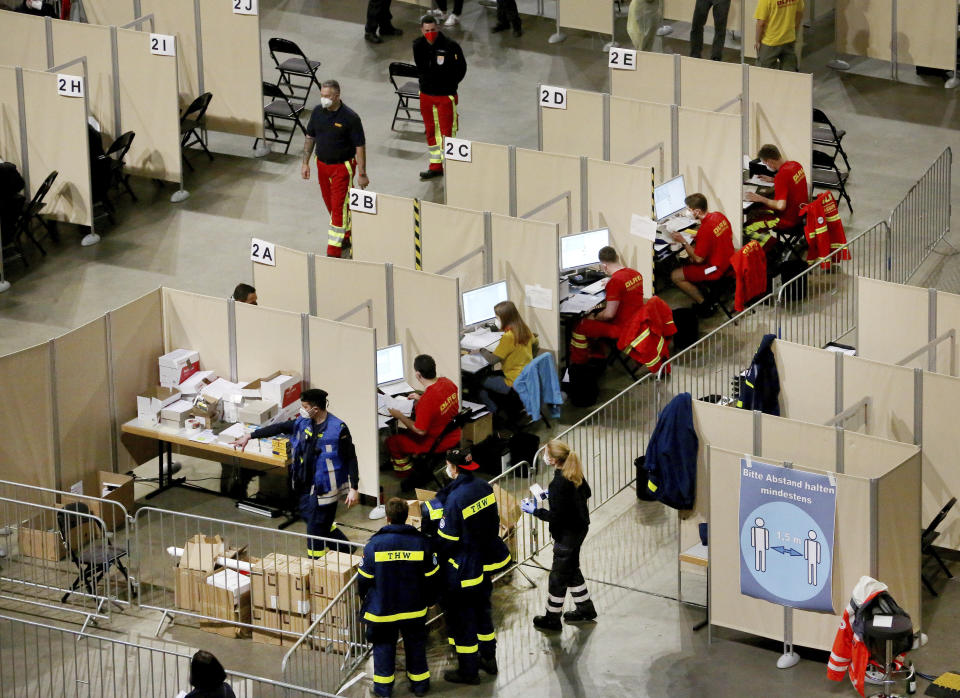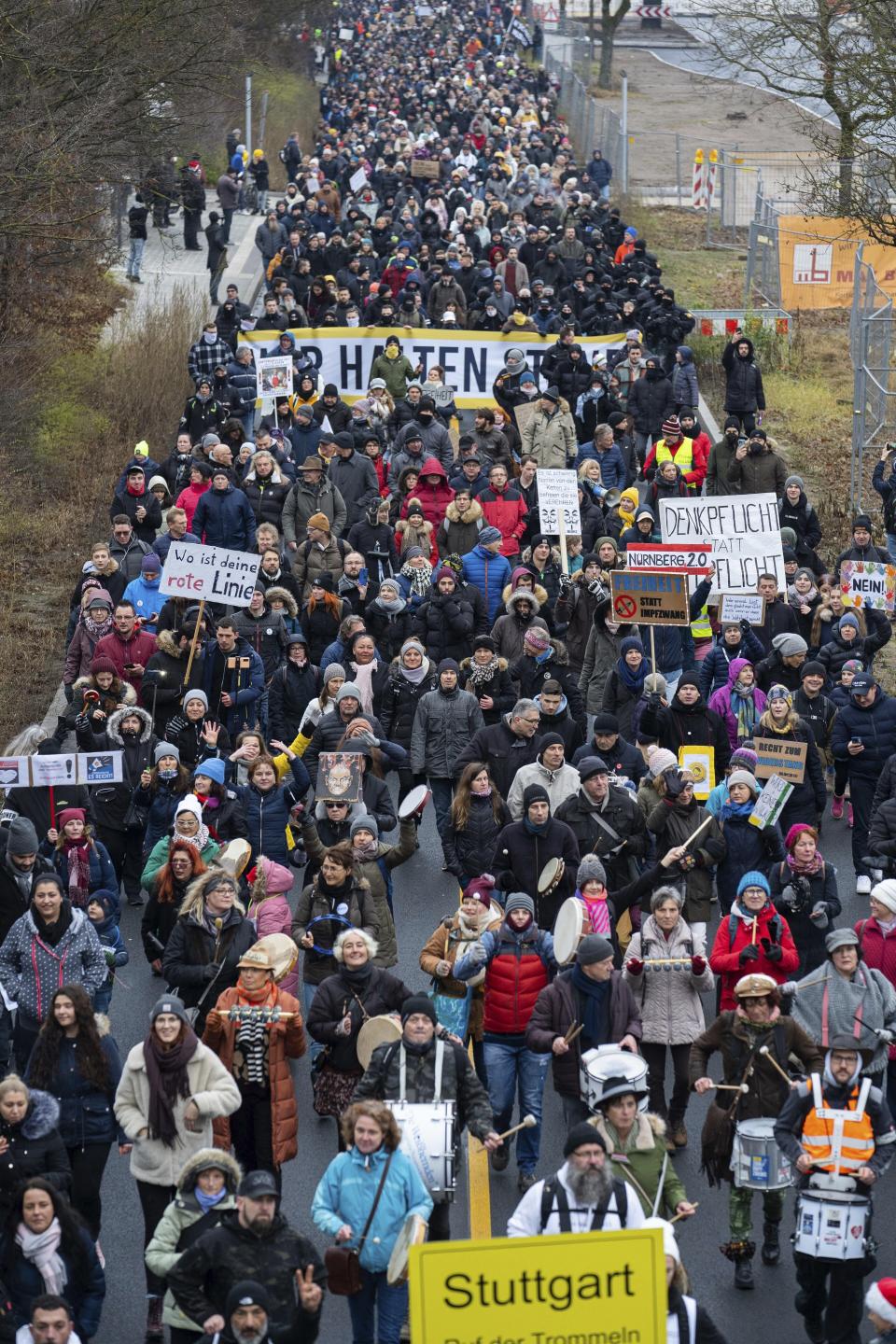German experts urge stricter virus measures, more boosters
VIENNA (AP) — Germany should implement stricter measures this week to slow the spread of the omicron variant, the German government's new expert council said Sunday, a day after the government announced it would impose travel restrictions on people coming from Britain.
The council — comprised of Germany's top virologists and health officials — said omicron “brings a new dimension to the pandemic developments."
Omicron cases are doubling in Germany around every 2 to 4 days, the council said, making it slightly slower than the spread in the U.K. but faster than any previous variant.
To combat the next wave of infections and keep Germany's already stretched hospitals from being overwhelmed, the council recommended stricter government policies to reduce Germans' contacts.
“Effective, nationally coordinated countermeasures to control the infection process need to be drawn up, in particular well-planned and well-communicated contact restrictions,” it said in a statement.
The council also recommended speeding up Germany's booster vaccination program. Germany has fully inoculated 70.2% of its population, and 30.3% have received a booster shot.
“A massive expansion of the booster campaign can slow down this dynamic and reduce the impact, but not prevent it,” the council wrote, adding residents need to reduce their own contacts, consistently wear face masks and test regularly for the virus.
The country’s national disease control center, the Robert Koch Institute, added Britain to its list of “virus variant areas” late Saturday. This means anyone traveling from the U.K. to Germany must enter a mandatory quarantine for 14 days, regardless of their vaccination status.
The new restrictions, which take effect at midnight Sunday, come as the U.K. is reporting record-high numbers of new coronavirus infections. On Saturday, Britain saw 90,418 new COVID-19 cases, on Sunday it reported 82,886 more.
The U.K. joins eight African countries, including South Africa, on Germany’s list of “virus variant areas.”
Starting Sunday, Germany considers France and Denmark “high risk areas,” meaning those who are not vaccinated or recovered from the virus must quarantine for 10 days after entering the country. Dozens of countries, including nearly all of Germany’s direct neighbors, have now been added to this category.
___
Follow all AP stories on the pandemic at https://apnews.com/hub/coronavirus-pandemic.




